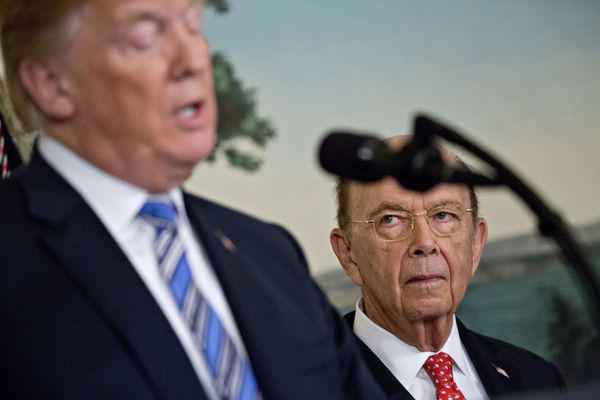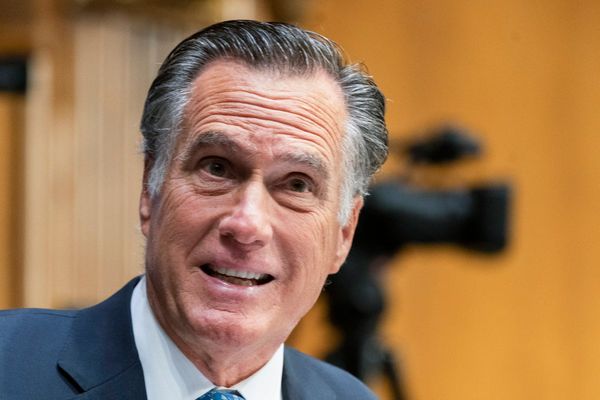Bitcoin surged to a new high this week as Congress prepared to review three key pieces of digital asset legislation.
Bitcoin powered near $118,860 overnight Thursday, breaking out of its recent $100,000 to $110,000 range and clearing its previous record of $111,970 from late May. Ethereum hit a 2025 peak near $3,040 as other cryptos and digital asset stocks trended higher.
Bitcoin treasury stock Strategy advanced 2% Friday. MSTR stock trading near a 430.35 buy point for a cup base.
CleanSpark, a bitcoin miner, surged 6% early Friday, then backtracked to a 1.9% loss. It rallied 15% last week to break out of a consolidation. Also last week, the Henderson, NV.-based outfit announced it mined 685 bitcoin in June, up almost 10% from May.
BlackRock's iShares Bitcoin Trust ETF climbed more than 4% to break out above a 63.70 buy point for a flat base. Other spot bitcoin ETFs are also trading in buy zones or near buy points.
"There seems to be no end in sight for positive momentum," said Greg Benhaim, executive vice president at digital asset manager 3iQ. He noted that institutional and corporate adoption was strong, while bitcoin treasury companies like Strategy and Metaplanet were accumulating the cryptocurrency at an "insane pace."
Benhaim contends that increased government spending could lead to the debasement of the dollar. If that becomes the case, it would mean "the sky is the limit" for the price of bitcoin.
The positive action prefaces a week in which the House will consider various cryptocurrency-related bills, in what the House Financial Services Committee had previously promoted as a "Crypto Week" for legislators. The agenda includes the CLARITY Act, which establishes a market framework for digital assets, the Genius stablecoin bill, which passed the Senate in June, and the Anti-CBDC Surveillance State Act, which prohibits Federal Reserve Banks from issuing central bank digital currencies.
GENIUS Bill
The Guiding and Establishing National Innovation For U.S. Stablecoins (GENIUS) Act provides a framework to regulate digital tokens that are pegged to the value of the U.S. dollar and further legitimizes cryptocurrencies. The bill's requirements include full reserve backing for issuers, monthly audits and anti-money laundering compliance, among other regulations.
The legislation passed the Senate in June in a 68-30 vote. It still needs to pass the Republican-held House.
"For the Senate to recognize the power of U.S. dollar stablecoins — and do so with notable bipartisan support — has been years in the making," said Nathan McCauley, CEO of federally chartered crypto bank, Anchorage Digital. He said that the bill will lead to greater changes in the industry.
"As stablecoin legislation continues to advance, GENIUS lays a strong foundation for lawmakers to make progress on comprehensive, bipartisan market structure reform," McCauley said.
See The 5 Best Stocks To Buy And Watch Right Now
But the House may want to make some changes to bring the GENIUS Act closer to their version of the bill, called the Stablecoin Transparency and Accountability for a Better Ledger Economy Act (STABLE), which was introduced in March and passed the Financial Services Committee in April.
The STABLE Act also provides a regulatory framework but with a few differences.
The STABLE Act prioritizes federal oversight, while the GENIUS Act allows for state and federal control. The House's bill has stricter standards for stablecoin issuers and requires FDIC insurance. Both bills require 1:1 reserve backing.
However, President Donald Trump has pushed to go ahead and adopt the Senate version of the bill so he can sign it into law before August, CoinDesk reported.
CLARITY Act
The Digital Asset Market Clarity Act (CLARITY Act) aims to serve as a crypto market structure bill. The legislation divides oversight authority between the Commodity Futures Trading Commission (CFTC) and the Securities and Exchange Commission (SEC), with the CFTC taking on a primary role. It also determines which cryptocurrencies are classified as "commodities," "securities," or "digital investment contract assets."
The act defines "digital commodities" as a digital asset whose value is "intrinsically linked" to the use of a blockchain. This excludes securities, derivatives and stablecoins.
The bill would require digital commodity exchanges and digital commodity brokers, such as crypto trading platforms, to register with the CFTC and give the agency exclusive regulatory jurisdiction over digital commodity transactions. Registered entities and exchanges then have to comply with rules established by the bill, which include trade monitoring, record keeping and reporting, antitrust concerns, conflicts of interest and more.
Streamline Your Hunt For The Best Stocks
The bill would prohibit commingling exchange assets with customer assets, unless waived by customers, as well as prohibit exchanges and their affiliates trading for their own accounts unless allowed by the CFTC. The bill would also update the bankruptcy code to account for funds held by digital commodity exchanges.
The exchanges would only be allowed to offer digital commodities with certified mature blockchains or for issuers that comply with ongoing reporting requirements.
While the CFTC would be the primary regulator, the SEC retains oversight in regards to fundraising and secondary market trading.
Sen. Elizabeth Warren (D-Mass.) during a July 9 committee meeting warned that the CLARITY Act may allow loopholes for some public companies like Meta Platforms or Tesla to tokenize their assets to avoid SEC regulations.
The CLARITY Act passed the House Financial Services Committee in June in a 32-19 vote. The bill has not yet moved to the Senate.
Anti-CBDC Surveillance State Act
The Anti-CBDC Surveillance State Act prohibits the Federal Reserve from issuing a central bank digital currency (CBDC), or any similar digital asset. The bill defines a CBDC as any form of digital money or monetary value that is a liability of the central bank.
Under the bill, the Federal Reserve and Board of Governors may not develop, create, or use CBDCs or similar tools to implement monetary policy. The act also prohibits the Fed from offering products and services and maintaining accounts for individuals, either directly or indirectly.
Here Are The Best Artificial Intelligence Stocks To Watch Now
Bitcoin Bill, Price Outlook
Matthew Sigel, head of Digital Asset Research at VanEck, believes that stablecoin legislation is the most likely to pass because fintech firms, banks and internet firms are already working to launch dollar-backed tokens.
However, Benhaim doubts that legislative approvals will impact the price of bitcoin significantly. He said he "wouldn't be surprised" if there's a sudden price spike after bill approval, followed by a slow decline back in price prior to their passage.
"The bills will pave the way for further bitcoin adoption and crypto innovation, however it won't happen immediately," he said.
Still, the "natural course for bitcoin remains higher," Sigel said, driven by persistent U.S. debt and deficit problems, a weakening dollar, growing momentum for Fed rate cuts and the potential for a new Federal Reserve Chair next year. Meanwhile, new crypto treasury companies are buying more bitcoin than ETFs this year, which signals deep institutional demand.
"Regardless of whether broader market structure reform advances, we think $180,000 bitcoin is very much in play for 2025," Sigel said.
You can follow Harrison Miller for more stock news and updates on X/Twitter @IBD_Harrison







